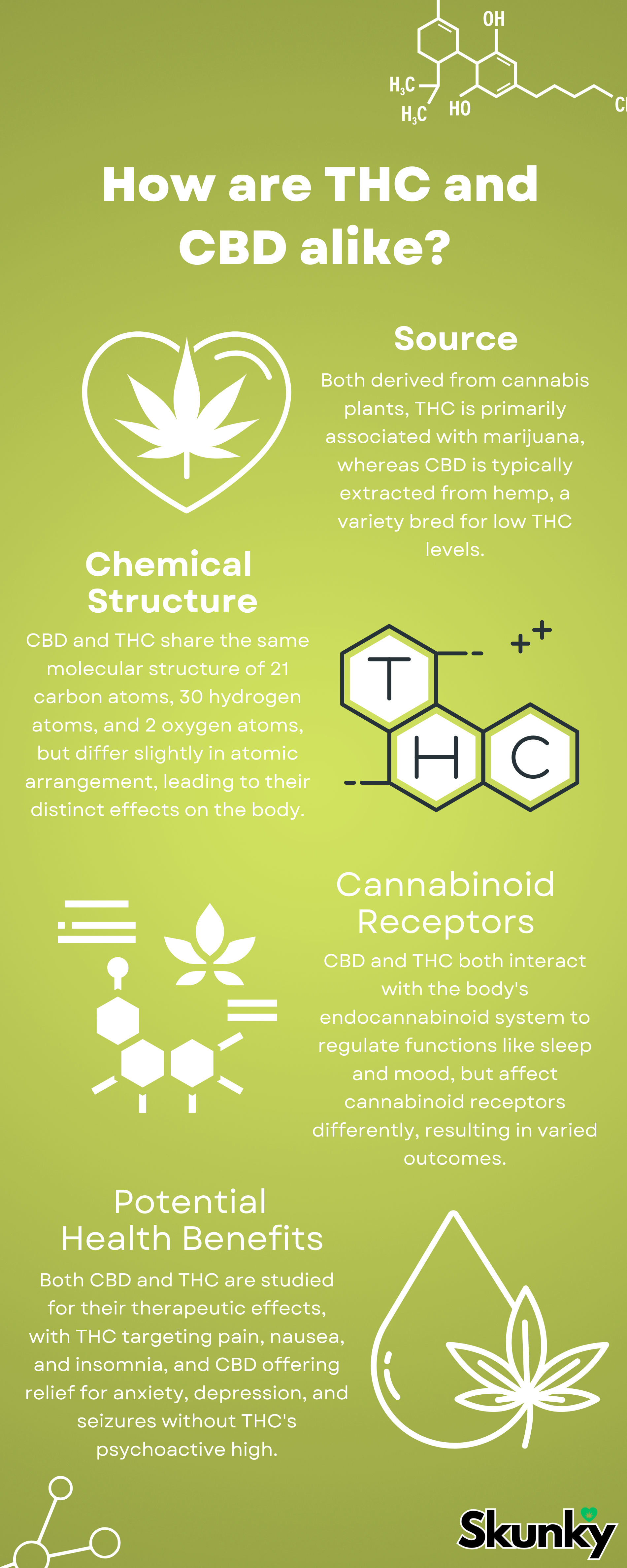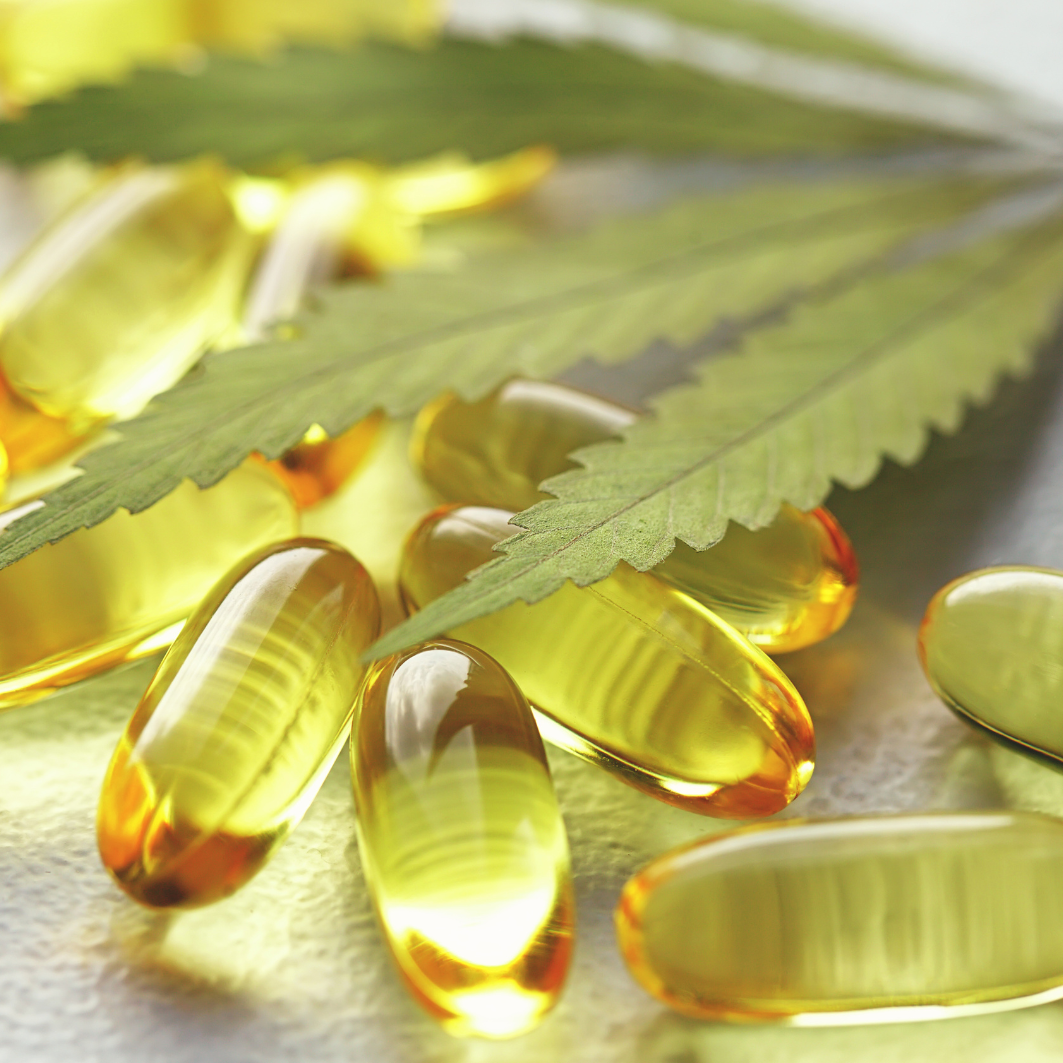
What’s the difference between CBD and THC?
Both THC and CBD are two distinct compounds found in cannabis plants, but each has different effects on the body.
Before we dive into the differences in these compounds, let’s explore the broader similarities between CBD (Cannabidiol) and THC (Tetrahydrocannabinol)…it’s time to get science-y, the Skunky way!
How are CBD and THC alike?
CBD and THC have the same molecular structure, with 21 carbon atoms, 30 hydrogen atoms, and 2 oxygen atoms. However, there's a slight difference in how these atoms are arranged, which contributes to their different effects on the body.
Both compounds are derived from cannabis plants, including both marijuana and hemp. However, THC is most commonly associated with marijuana, while CBD is often extracted from hemp, a type of cannabis plant which is selectively bred for its low levels of THC.
CBD and THC both interact with the body's endocannabinoid system (ECS), which plays a role in regulating a range of functions and processes, including sleep, mood, appetite, memory, and reproduction. While both interact with cannabinoid receptors, their effects on these receptors vary, leading to different outcomes.
Both CBD and THC offer potential therapeutic effects. THC is known for its psychoactive effects, but also for its potential to relieve pain, nausea, insomnia, and appetite loss. CBD is sought for its potential to help with anxiety, depression, seizures, and pain, without causing the high associated with THC.

What is the ECS (endocannabinoid system)in the body?
Before we can fully dive into the differences between THC and CBD, we have to first get familiar with one of the body’s most intricate systems - the ECS, or encocannabinoid system, the network within our bodies in which THC and CBD interact.
It’s actually pretty simple. The endocannabinoid system (ECS) functions as a comprehensive network designed to maintain equilibrium across various functions such as mood, appetite, and pain sensation. This system comprises receptors located throughout the body, specialized molecules that convey instructions for physiological processes, and enzymes that decompose these molecules once their task is accomplished.
So, in simple terms, the ECS is like a behind-the-scenes manager for your body, making sure everything functions smoothly and keeps you feeling balanced and harmonized.
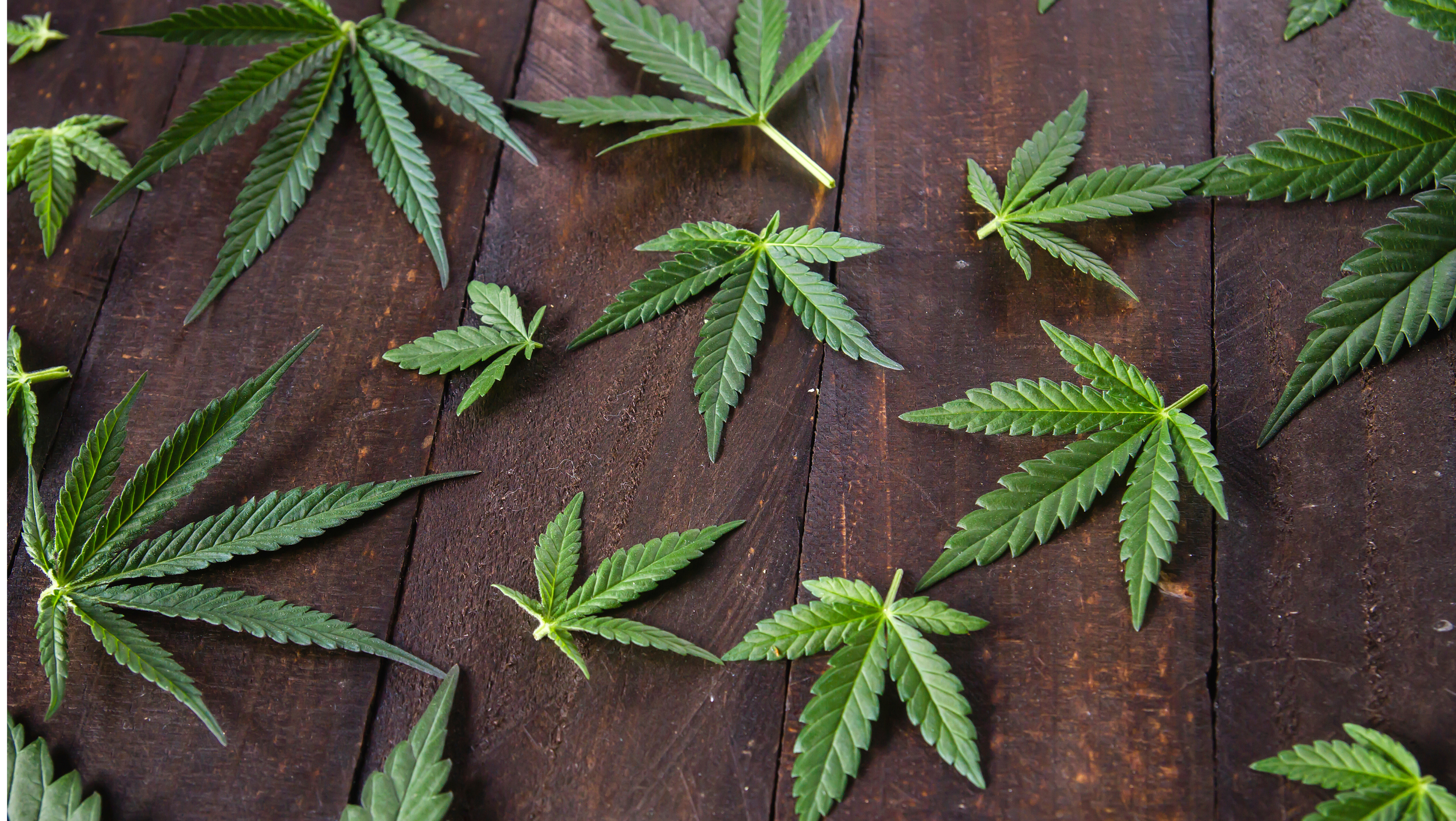
How Do CBD and THC Differ?
Now that we’ve got the basics covered, and understand what qualities CBD and THC share in common, let’s explore the differences between these two compounds.
As mentioned above, CBD (cannabidiol) and THC (tetrahydrocannabinol) interact with the body in different ways due to the distinct arrangements of their chemical structures. THC is psychoactive, meaning it can produce a "high" or altered state of consciousness which is primarily associated with marijuana use.
In contrast, CBD is non-psychoactive and is often sought for its potential therapeutic benefits without inducing a high, making it a popular choice for those looking for relief from pain, anxiety, and certain other conditions without the psychoactive effects.
What Distinguishes THC From CBD?
As with CBD, THC’s different effects on the body (which we’ll get into below) are due to its source - marijuana. Such also makes it less legal than CBD.
Where does THC come from?
THC is extracted from all varieties of cannabis plants, but the concentration of THC varies significantly among different strains. Strains classified in the “hemp” category inherently have the lowest amounts of THC, while plants classified as marijuana are those with higher levels of naturally occurring THC (more than .3%).
Where is THC legal?*
It varies significantly across the United States. Federally, THC remains classified as a Schedule I substance, meaning it's considered to have “a high potential for abuse” (the government’s words, not ours) and no “formally” accepted medical use**.
However, several states have passed laws legalizing or decriminalizing cannabis for medical or recreational use, allowing for legal consumption of THC within those jurisdictions. The disparity between federal law and state laws creates a complex legal landscape where the legality of THC can vary significantly from one state to another.
*This information only pertains to products containing greater than 0.3% THC content. Any cannabis product with a level of 0.3% THC or less is considered legal and not subject to the same regulations are those products containing a greater level of THC.
**Independent studies on potential health benefits of THC are ongoing, which we’ll dive into further below.
Does THC get you high?
Yes, THC is the main psychoactive compound in cannabis that gives you a high. When consumed, THC interacts with your brain, affecting things like mood, perception, and cognition. This is why when people use marijuana, they might feel relaxed, happy, or experience altered senses. Everyone reacts a bit differently, though, depending on factors like the amount consumed and individual tolerance.
Is THC addictive?
Potentially, yes. THC can be addictive for some people. While not everyone who consumes THC gets addicted, a portion of users might find it hard to quit and experience withdrawal symptoms like irritability, mood swings, and sleep issues when they try to stop. This is referred to as “cannabis use disorder”, and it's more likely if you use it frequently or start at a young age. Just like with anything, how it affects you can vary from person to person. A 2023 study study explored specific genetic variants which could be linked to a predisposition towards cannabis use disorder, but it’s an area that still needs further research. [9]
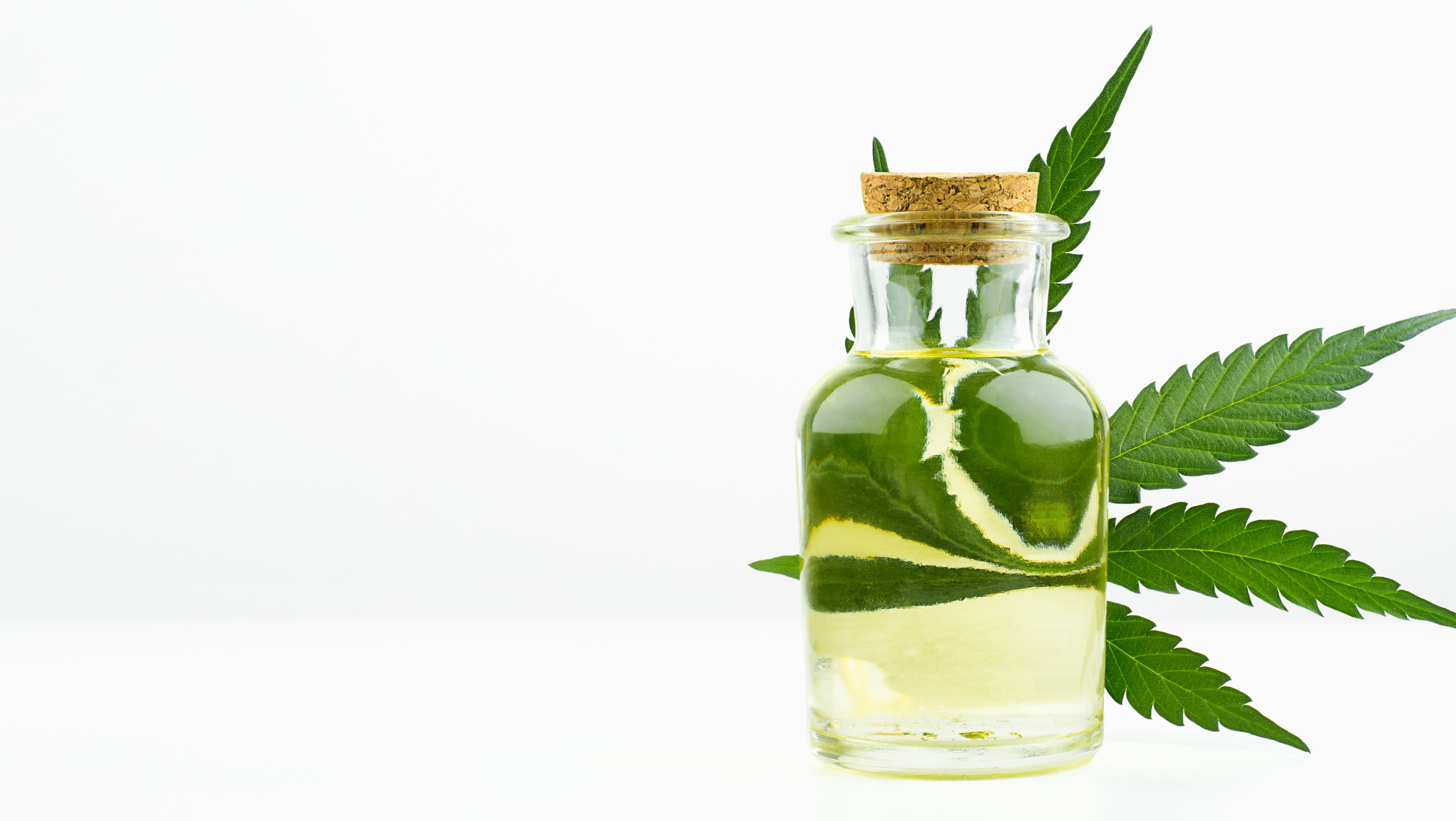
What Makes CBD…CBD?
Besides its effects on the body, CBD is differentiated by its source (hemp), which also impacts its legality.
Where do we get CBD from?
CBD is almost always extracted from “hemp,” a legal distinction that refers to a type of cannabis sativa plant specifically bred to be naturally low in THC. A THC content of less than 0.3% or less is what differentiates “hemp” from other variations of cannabis sativa plants typically consumed as marijuana.
Where is CBD legal?
Almost everywhere in the U.S., so long as it has a THC content of 0.3% or less. This is due to the 2018 Farm Bill which federally legalized hemp cultivation. However, some states have prohibitive laws regarding use and possession. This Forbes article contains a useful chart, last updated in Sept. 2023, showing CBD legality by state.
Can CBD get you high?
No, CBD is considered non-psychoactive because of its lack of direct, high-affinity interaction with CB1 receptors in the brain, which are responsible for the psychoactive effects of marijuana. Its complex, multifaceted interaction with the body's ECS (endocannabinoid system) and other receptor systems allows it to exert various therapeutic effects without inducing the high associated with THC. That said, some people are very sensitive to THC and even very small amounts may have an unwanted altering effect. If .3% or less THC content is of concern, try a broad-spectrum CBD oil or CBD gummies, in which any detectable THC has been removed.

What About the Different Benefits of CBD and THC?
Because of the different ways CBD and THC interact with the ECS, or endocannabinoid system, each offers different benefits to the body.
What are CBD Benefits?
Anxiety Reduction: Ongoing research highlights CBD’s ability to help reduce anxiety. It does so not only by interacting with the endocannabinoid system which regulates mood and stress, but also by increasing levels of anandamide, a neurotransmitter, in the brain. More anandamide enhances feelings of well-being, and positively affects serotonin levels to promote calm. These properties highlight CBD's potential in managing anxiety and related disorders.[1]
Anti-Depressive Effects: Promising research is also being conducted into the anti-depressive properties of CBD, highlighting its ability to help the brain develop new neurons (that is, grow new brain cells) and protect existing neurons from damage. [2]
Treatment for PTSD: While most people can benefit from CBD in one way or another, specific research is also being conducted on CBD’s potential applications in helping those suffering from PTSD. Benefits to PTSD sufferers include facilitating fear reduction, diminishing the intensity of painful memories, and assisting in mood regulation. [2]
Anti-Inflammatory: CBD has been shown to reduce inflammation in the body by helping to directly reduce free radicals, a direct cause of inflammation. [3] Reducing inflammation in the body can play a role in relieving symptoms of inflammatory disorders, including: arthritis, multiple sclerosis, and inflammatory bowel disease, and more.
Pain Relief: The anti-inflammatory properties of CBD, as described above, also assist in decreasing pain. This, coupled with CBD’s interaction with the brain’s serotonin receptors, can produce an analgesic effect. [4]
Improved Sleep Quality. CBD might just be your ticket to better sleep! It eases those pesky issues like anxiety and pain that often keep us up at night, leading to deeper and more peaceful zzz's. Plus, it helps get your sleep cycle on a more regular track, so every night can be a good night.
Anti-Nausea: CBD can also help keep nausea at bay, especially when it's from treatments like chemotherapy. How? By interacting with the brain's serotonin levels, which are big players in controlling that queasy feeling. So, it's a handy option for those wanting relief without the high that THC brings. [4]
Relief from Social Anxiety: CBD is known for it’s calming effect on the nerves, especially for folks who get super anxious in social settings, like giving a talk in front of a crowd. This study found that people who took CBD before a public speaking test were way less stressed and uncomfortable than those who didn't. So, it's like CBD helps the brain dial down the anxiety volume, making social situations feel more doable. [5]
Anti-Psychotic Effects: While more research is needed, studies have shown CBD might give a helping hand to folks dealing with schizophrenia by smoothing out some of those tough symptoms like delusions or hallucinations. The cool part? It does this by boosting anandamide, a brain chemical that's all about keeping our mood in check, which could explain why it's showing some promise as a chill, anti-psychotic option with fewer side effects than other medications. [6]
Anti-Seizure: CBD has been a game-changer for those dealing with seizures, especially when other treatments have failed… It's thought to calm down the excessive electrical and chemical activity in the brain that causes seizures. [7] Additionally, in 2018 the FDA green-lit Epidiolex, the first Cannabidiol drug ever approved for any purpose, specifically for the treatment of seizures associated with two severe forms of epilepsy, Lennox-Gastaut syndrome and Dravet syndrome.
Blood Pressure Support: CBD could be a heart's best friend, offering a helping hand to maintain cardiovascular health. This 2018 study shows how CBD can reduce high blood pressure, a serious condition that can increase risk for such problems as heart attacks and stroke. On top of that, CBD's ability to fight inflammation and act as an antioxidant might offer extra protection against heart disease. [8]
What are THC Benefits?
While THC and CBD are two unique compounds, they both have applications and benefits which can oftentimes overlap. Individually THC can have the following positive effects on the body:
Pain Relief: THC is widely recognized for its effectiveness in reducing pain, including neuropathic pain and pain associated with conditions like multiple sclerosis and arthritis. While CBD’s pain-suppressing effects stem from its anti-inflammatory properties, THC directly interacts with the brain's pain receptors to provide pain relief. Some have even explored whether THC can be a suitable alternative to opioids in certain circumstances. [10]
Improved Sleep: THC can help with sleep by interacting with the body's endocannabinoid system, which plays a role in maintaining various bodily functions, including sleep. It can induce drowsiness, making it easier for people to fall asleep, especially those who suffer from conditions like insomnia. Furthermore, THC may reduce sleep interruptions for some, leading to a more restful night's sleep.
Appetite Stimulation: THC activates parts of the brain that control appetite, making food smell and taste more appealing, which often leads to an increase in eating. This effect is particularly useful for people undergoing treatments like chemotherapy, which can reduce appetite.
Nausea and Vomiting Reduction: THC works by binding to cannabinoid receptors in the brain that can affect the body's vomit control mechanism, helping to suppress nausea and vomiting. This can be particularly beneficial for patients undergoing treatments like chemotherapy, where nausea is a common side effect. [11]
Anxiety Reduction: At the right dose, THC can promote relaxation and a sense of calm, making it easier to manage stress and anxiety. However, it's important to find the right balance, as too much THC can actually increase anxiety in some people (more on that below).
Neuroprotective Properties: Research has shown promise in THC’s ability to help protect brain cells and support brain health, which could be beneficial in treating neurodegenerative diseases like Alzheimer's and Parkinson's. Its antioxidant properties can help reduce oxidative stress and inflammation in the brain, potentially slowing the progression of these conditions. This makes THC a subject of interest in research looking to improve treatments for neurodegenerative disorders. [12, 14]
Reducing Muscle Spasms: THC has been shown to reduce muscle spasms, particularly in conditions like multiple sclerosis. Its effect on the central nervous system can alleviate the continuous muscle contractions that cause stiffness and pain. This makes THC a useful option for managing muscle spasticity symptoms [13].
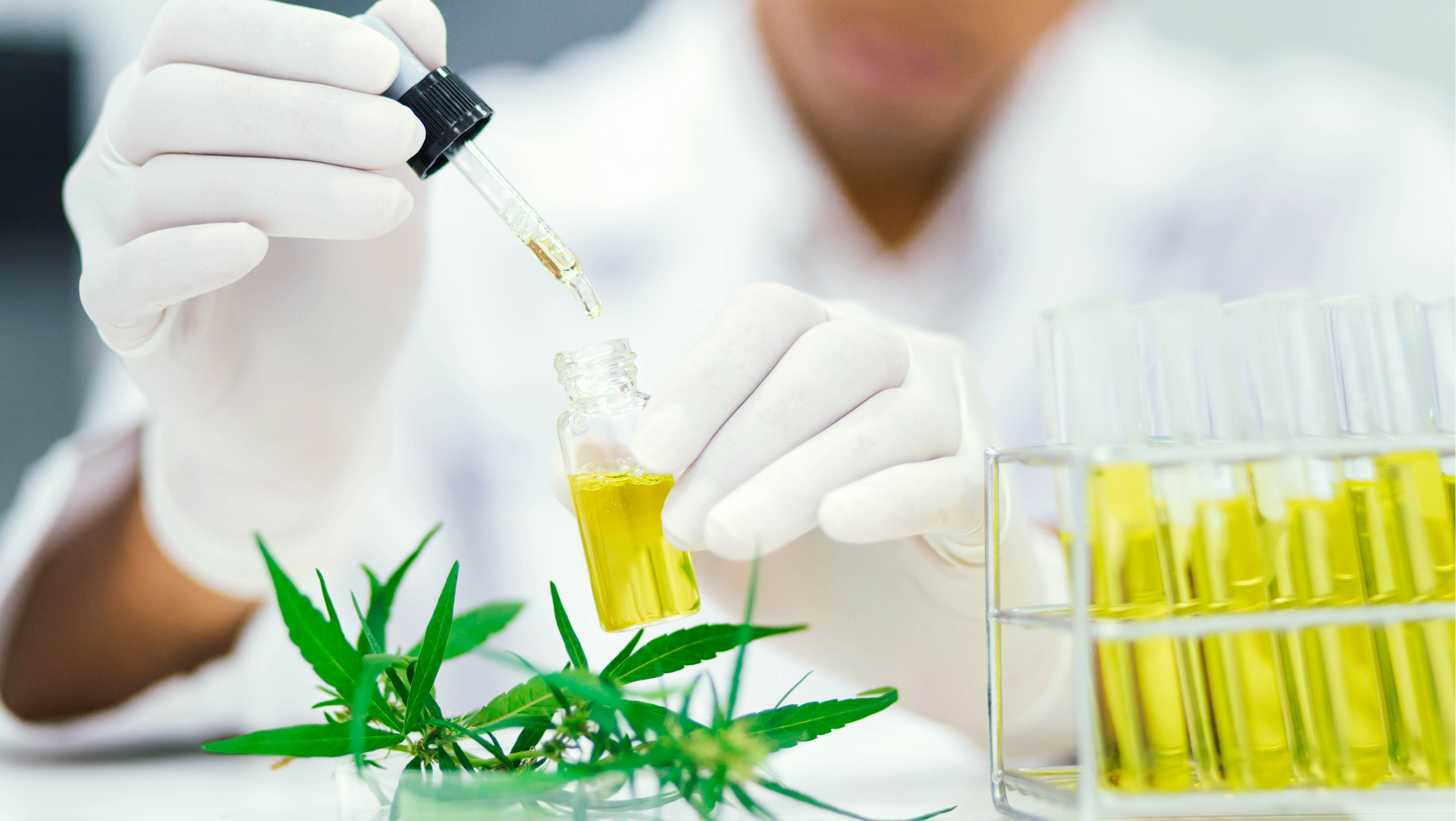
Are There Any Side Effects?
Besides the different potential benefits CBD and THC each offer the body, they both can bring about less desirable side effects.
What are CBD side effects?
While CBD is generally considered quite safe, it can cause mild side effects in some people, including:
Fatigue: Some users report feeling unusually tired or lethargic after using CBD.
Changes in Appetite: CBD might increase or decrease appetite, varying from person to person. Please note: As it doesn’t stimulate CB1 receptors, CBD is not known for increasing appetite, unlike THC, and does not give “the munchies” so commonly associated with marijuana use. However, CBD's impact on appetite is more subtle and indirect. It may influence appetite through its anti-inflammatory and anti-anxiety effects, potentially reducing nausea or discomfort that could suppress appetite.
Diarrhea: High doses of CBD have been linked to digestive issues, including diarrhea.
Dry Mouth -a.k.a. "cottonmouth:” CBD can reduce saliva production, leading to a dry mouth sensation.
Dizziness or Light-headedness: This can occur due to a drop in blood pressure shortly after taking CBD.
Nausea: Although CBD is used to combat nausea, some individuals might experience it as a side effect.
Changes in Mood: While CBD is sought for its calming effects, it can cause mood changes in some users.
Interactions with Other Medications: CBD can affect how other medications you're taking work, potentially causing unwanted side effects. This is why we always recommend consulting with your attending physician prior to starting a new CBD regime, especially if you are already taking other prescription medications.
What are the side effects of THC?
It’s important to realize that the side effects associated with THC are generally considered more severe than those of CBD. THC is psychoactive and can cause effects such as anxiety, paranoia, and impaired cognitive functions.
CBD, on the other hand, does not have psychoactive properties and is associated with fewer and milder side effects, such as fatigue or changes in appetite. Thus, while both compounds have therapeutic benefits, THC's side effects are more pronounced, leading to a need for careful dosing and consideration in its medical use.
Known side effects of THC include:
Dry Mouth - often described as "cottonmouth:" THC can reduce saliva production.
Red Eyes: THC causes blood vessels in the eyes to expand, leading to redness.
Increased Heart Rate: Shortly after consuming THC, users may experience a temporary increase in heart rate.
Memory Impairment: THC can affect short-term memory during intoxication.
Anxiety or Paranoia: Some individuals may feel anxious or paranoid after consuming THC.
Dizziness: A drop in blood pressure may cause dizziness or faintness.
Delayed Reaction Times: THC can slow reaction times, affecting tasks like driving.
Mood Alterations: Users might experience mood swings, ranging from euphoria to discomfort.
Interactions with other medications: Because marijuana is illegal in many states, and illegal at the federal level, studies examining how THC interacts with prescription drugs are lacking. That said, both THC and the chemical components of preparations, could cause interactions with medications. This is why we advise consulting with your health professional about your marijuana use, especially if you take medications. (14)
Can THC exacerbate mental illness?
Yes, THC can exacerbate conditions like psychosis, depression, and other mental disorders in susceptible individuals. Research indicates that high doses of THC can increase the risk of psychosis in those predisposed to such conditions. It may also affect mood and exacerbate symptoms of depression and anxiety in some people. [15]
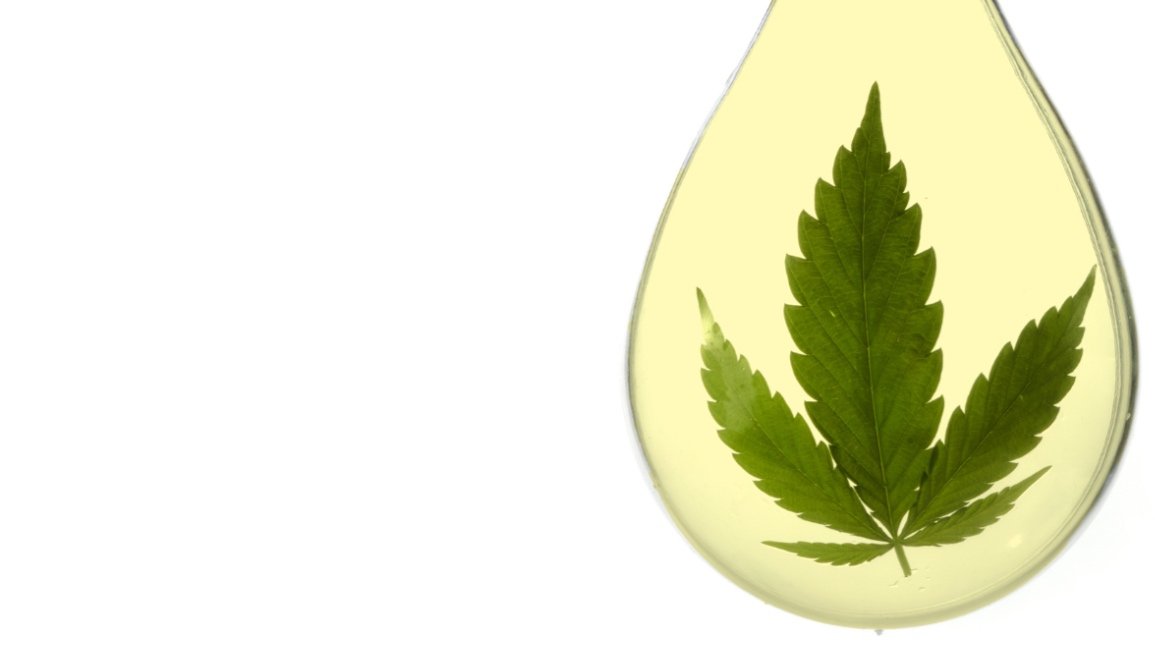
What About Drug Testing - Will CBD Make Me Test Positive?
Generally, no. Most drug tests are screening for THC, or its metabolites, not CBD, so usually a CBD product with less than 0.3% THC content shouldn’t present a problem. If you are subject to drug testing, we recommend staying on the safe side, and sticking with brands that are transparent about their third party lab testing, which will clearly disclose the precise THC content of the product in question.
Conversely, THC will cause users to test positive on drug tests. Drug tests for cannabis primarily look for THC or its metabolites, which can remain in the body for varying lengths of time depending on factors such as the frequency of use, body fat content, and metabolism rate. THC can be detected in urine, blood, saliva, and hair, with urine tests being the most common form of drug testing for employment or legal purposes.
When in doubt, go with a broad-spectrum CBD product rather than full-spectrum. Full spectrum means that the CBD contains all of the cannabinoid compounds extracted from the hemp, including THC. Broad spectrum means that the extraction undergoes additional processing to remove all THC. It still has various cannabinoid compounds to help create a beneficial CBD “entourage effect,” but doesn’t contain any detectable THC.
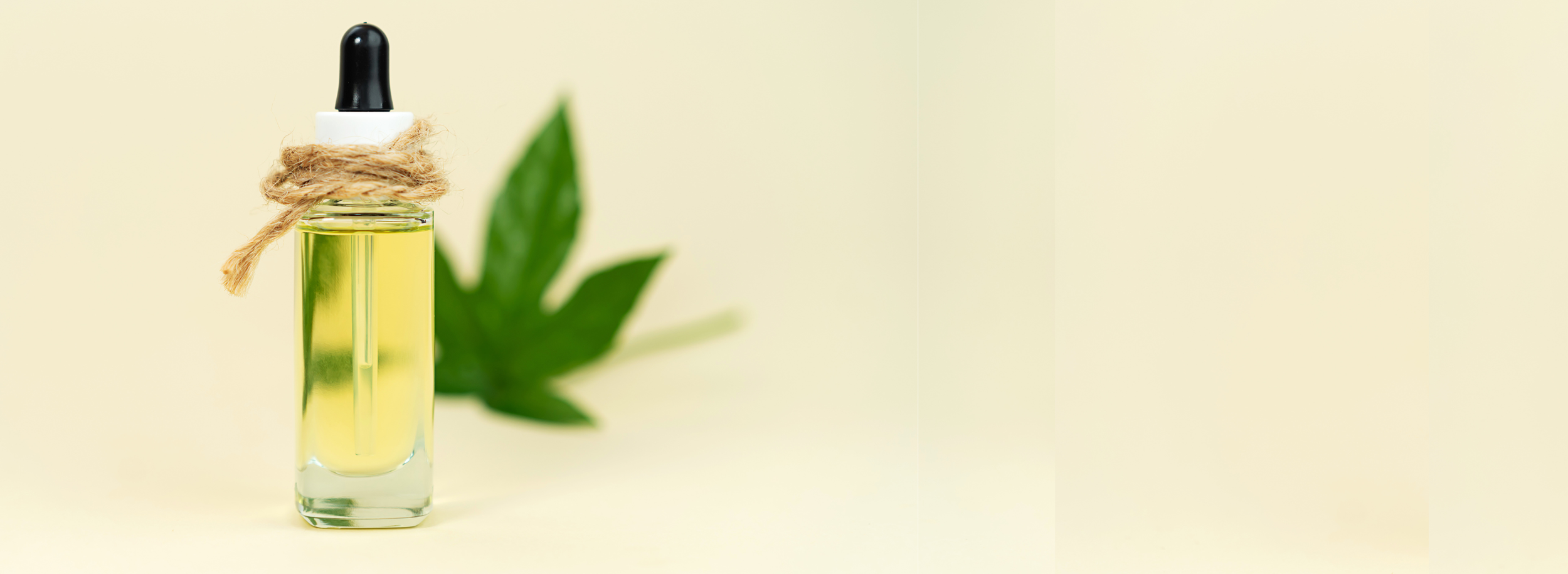
Now that CBD and marijuana (THC concentration of more than .3%) are legal in many states, use of these substances is on the rise. We hope that this article helps you understand the differences and similarities of CBD and THC.
Still not sure which CBD products are right for you? We’re here to help.
References:
Skelley JW, Deas CM, Curren Z, Ennis J. Use of cannabidiol in anxiety and anxiety-related disorders. J Am Pharm Assoc (2003). 2020 Jan-Feb;60(1):253-261. doi: 10.1016/j.japh.2019.11.008. Epub 2019 Dec 19. PMID: 31866386.
Stanciu CN, Brunette MF, Teja N, Budney AJ. Evidence for Use of Cannabinoids in Mood Disorders, Anxiety Disorders, and PTSD: A Systematic Review. Psychiatr Serv. 2021 Apr 1;72(4):429-436. doi: 10.1176/appi.ps.202000189. Epub 2021 Feb 3. PMID: 33530732; PMCID: PMC8857699.
Atalay S, Jarocka-Karpowicz I, Skrzydlewska E. Antioxidative and Anti-Inflammatory Properties of Cannabidiol. Antioxidants (Basel). 2019 Dec 25;9(1):21. doi: 10.3390/antiox9010021. PMID: 31881765; PMCID: PMC7023045.
Parker LA, Rock EM, Limebeer CL. Regulation of nausea and vomiting by cannabinoids. British Journal of Pharmacology. 2011 Aug; 163(7):1411-1422. https://doi.org/10.1111/j.1476-5381.2010.01176.x
Bergamaschi, M. M., Queiroz, R. H., Chagas, M. H., de Oliveira, D. C., De Martinis, B. S., Kapczinski, F., Quevedo, J., Roesler, R., Schröder, N., Nardi, A. E., Martín-Santos, R., Hallak, J. E., Zuardi, A. W., & Crippa, J. A. (2011). Cannabidiol reduces the anxiety induced by simulated public speaking in treatment-naïve social phobia patients. Neuropsychopharmacology : official publication of the American College of Neuropsychopharmacology, 36(6), 1219–1226. https://doi.org/10.1038/npp.2011.6
Leweke, F. M., Piomelli, D., Pahlisch, F., Muhl, D., Gerth, C. W., Hoyer, C., Klosterkötter, J., Hellmich, M., & Koethe, D. (2012). Cannabidiol enhances anandamide signaling and alleviates psychotic symptoms of schizophrenia. Translational psychiatry, 2(3), e94. https://doi.org/10.1038/tp.2012.15
Thiele EA, Marsh ED, French JA, Mazurkiewicz-Beldzinska M, Benbadis SR, Joshi C, Lyons PD, Taylor A, Roberts C, Sommerville K; GWPCARE4 Study Group. Cannabidiol in patients with seizures associated with Lennox-Gastaut syndrome (GWPCARE4): a randomised, double-blind, placebo-controlled phase 3 trial. Lancet. 2018 Mar 17;391(10125):1085-1096. doi: 10.1016/S0140-6736(18)30136-3. Epub 2018 Jan 26. PMID: 29395273.
Jadoon, K. A., Tan, G. D., & O'Sullivan, S. E. (2017). A single dose of cannabidiol reduces blood pressure in healthy volunteers in a randomized crossover study. JCI insight, 2(12), e93760. https://doi.org/10.1172/jci.insight.93760
Levey, D.F., Galimberti, M., Deak, J.D. et al. Multi-ancestry genome-wide association study of cannabis use disorder yields insight into disease biology and public health implications. Nat Genet 55, 2094–2103 (2023). https://doi.org/10.1038/s41588-023-01563-z
Khalid N, Patel P, Singh A. Cannabis Versus Opioids for Pain. [Updated 2023 Aug 17]. In: StatPearls [Internet]. Treasure Island (FL): StatPearls Publishing; 2024 Jan-. Available from: https://www.ncbi.nlm.nih.gov/books/NBK573080/
Smith, L. A., Azariah, F., Lavender, V. T., Stoner, N. S., & Bettiol, S. (2015). Cannabinoids for nausea and vomiting in adults with cancer receiving chemotherapy. The Cochrane database of systematic reviews, 2015(11), CD009464. https://doi.org/10.1002/14651858.CD009464.pub2
Carroll CB, Zeissler ML, Hanemann CO, Zajicek JP. Δ⁹-tetrahydrocannabinol (Δ⁹-THC) exerts a direct neuroprotective effect in a human cell culture model of Parkinson's disease. Neuropathol Appl Neurobiol. 2012 Oct;38(6):535-47. doi: 10.1111/j.1365-2990.2011.01248.x. PMID: 22236282.
Haddad, F., Dokmak, G., & Karaman, R. (2022). The Efficacy of Cannabis on Multiple Sclerosis-Related Symptoms. Life (Basel, Switzerland), 12(5), 682. https://doi.org/10.3390/life12050682
Alsherbiny MA, Li CG. Medicinal Cannabis-Potential Drug Interactions. Medicines (Basel). 2018 Dec 23;6(1):3. doi: 10.3390/medicines6010003. PMID: 30583596; PMCID: PMC6473892.
Moore TH, Zammit S, Lingford-Hughes A, Barnes TR, Jones PB, Burke M, Lewis G. Cannabis use and risk of psychotic or affective mental health outcomes: a systematic review. Lancet. 2007 Jul 28;370(9584):319-28. doi: 10.1016/S0140-6736(07)61162-3. PMID: 17662880.

